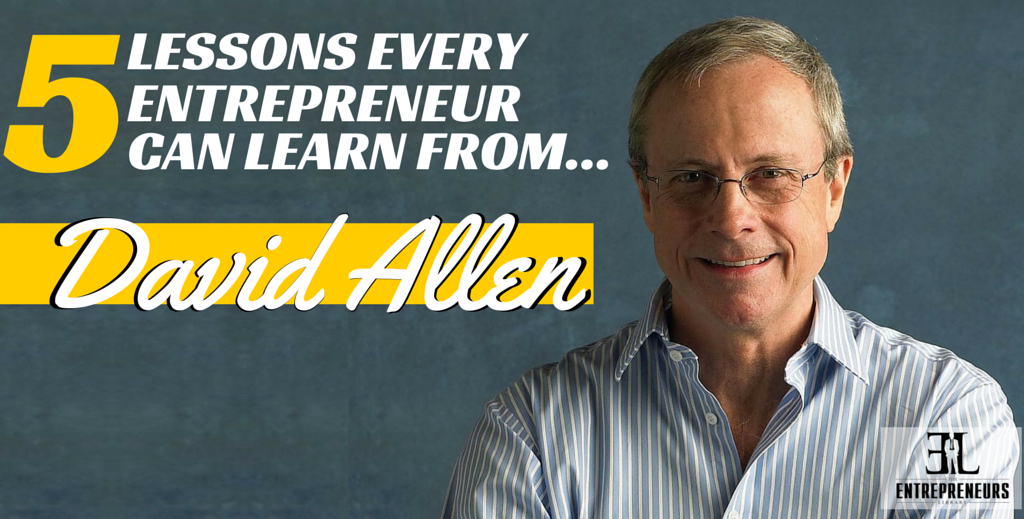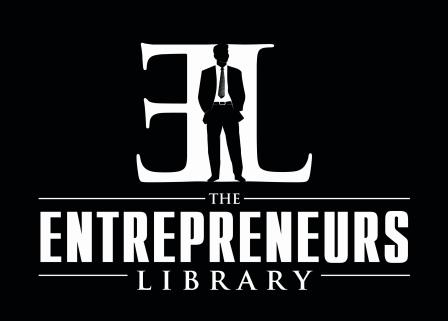5 Lessons Entrepreneurs Can Learn From David Allen

Who is David Allen and what you can learn from him:
David Allen claims that he has had 35 professions by the age of 35. These include: a waiter, magician, travel agent, vitamin distributor, gas station manager, karate teacher and another 30 more.
Obviously he didn’t succeed or master all of these professions. Nonetheless today he’s one of the world’s most renowned productivity experts and his book Getting Things Done: The Art of Stress-Free Productivity has sold well more than 600,000 copies globally.
Besides being an author, David Allen is also a successful businessman who consults Fortune 500 companies. In the online arena, he’s known as the “The Godfather of Productivity.”
What entrepreneurship lessons can be learned from David Allen?
According to Allen, “Anxiety results from a lack of organization, preparation, control and action.”
Here are five thought-provoking lessons that entrepreneurs can learn from him and his book.
1. Take the Bottom-Up Approach
David Allen writes that it makes intellectual sense to start your business mission on a high note, but if your daily tasks are distracting, you may end up failing to focus on the bigger picture. Taking care of your inbox first and gaining full control of that will free up your mind to think bigger. If your home is what you are talking about, the equivalent of your in-box may be the laundry room calamity, the mail that piles up or the clutter which gets in the way of your bigger plans for your family and household.
2. Foresake the Daily To-Do-List
David Allen mentions that in the face organizational, it will benefit you to do away with the list making habit, although he swears by it. Rather, he recommends having a calendar that is kept free of miscellanea with the following types of listings:
3. Design a Rapid Fire Filing System
In his book, Allen writes that your filing system should be simple and easy to navigate through such that if you need to file something, you can pick it from your mail stack or email print and place it in the proper file within a minute. He further on explains that if your filing system is easy, fun and current, you will procrastinate and make the clutter worse.
He recommends having an A to Z filing system which will reduce search time, and must be within arm’s reach. He also states when your filing system reaches ¾ full, shred or recycle what’s outdated and consider digitalizing some.
4. Four Prong Method To Figure Out What to Do
Whether you are stay a at home mom, self-employed, retired or in the workforce, there are certain things you must do. Allen proposes a four criterion analysis to determine what you should do with your time.
5. Saying “No” to More Things and More Often
Although this little nugget is buried deep in Allen’s book, it is however possibly one of the best pieces of advice. He explains our tendency to become overbooked for both our personal and work lives. He writes, “You will have to say no to more things and more often to stay comfortable and afloat.”
For this he recommends a section called ‘The Weekly Review’ where you put aside an hour or two to reflect on what you did the past week, what needs to be done the following week and if there’s anything that went by without being attended to. The review will help you view how you managed to commit yourself to different tasks and what you can do about your level of commitment in the future.
To conclude, would-be entrepreneurs can employ some of these tips if not all to ensure productivity and efficiency which will eventually lead to quicker project completion times and higher revenue.
More Information About David Allen
Buy Getting Things Done on Amazon today
Get a behind-the-scenes look at Getting Things Done with David Allen himself
Visit GettingThingsDone.com to learn more about David, his book, and exclusive content
Follow David Allen on Twitter and Facebook
 The Entrepreneurs Library
The Entrepreneurs Library














